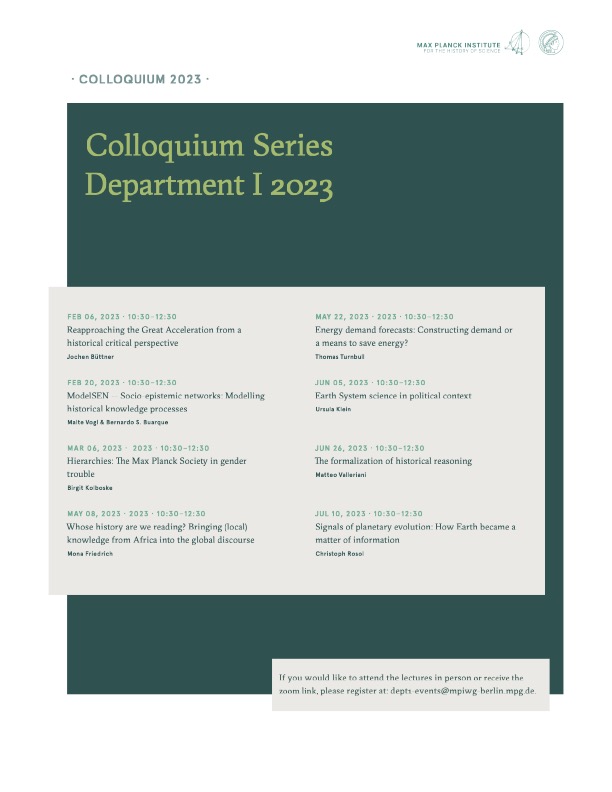Jun 5, 2023
Earth System Science in Political Context
- 10:30 to 12:30
- Colloquium
- Dept. I
- Ursula Klein
This is a lecture from Colloquium Series Department 1.
Earth System science (ESS) provides the major scientific background in the current debate about the Anthropocene. ESS practitioners study the Earth as a single, integrated system. They highlight systems thinking as the best way to achieve insight into large-scale planetary processes such as the global climate, the dynamics of the biosphere, and the planetary impact of the anthroposphere. ESS was institutionalized in the 1980s through a number of initiatives on national levels, mainly in the U.S., and by founding new international organizations such as the World Climate Research Programme and the International Geosphere-Biosphere Programme. Such kinds of international organizations have encouraged ESS practitioners to elaborate mixed politico-scientific declarations and publications that address the broader scientific community as well as policy-makers. Politico-scientific publications are now the main vehicle to allow ESS practitioners to reflect on and articulate their overall understanding of the Earth System beyond the technicalities of modeling. My talk will address epistemological consequences of this constellation as well as the political agenda of the coming into existence of ESS.

Contact and Registration
If you would like to attend the lectures in person or receive the zoom link, please register at: dept1-events@mpiwg-berlin.mpg.de.
About This Series
This event is part of the Colloquium Series Department I—2023.
